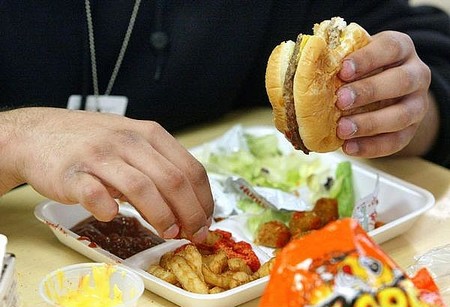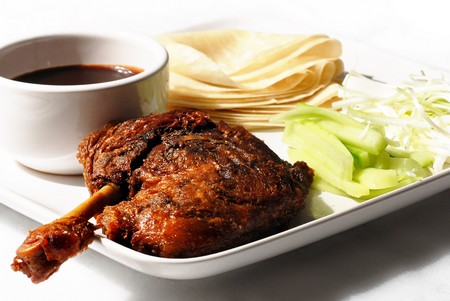Pay attention to your fullness. When you eat from physical hunger and eat exactly what you are hungry for, you will also notice when your stomach feels satisfied.
As you learn to normalize your eating, you’re likely to find that it’s easier to know when to start eating than it is to figure out when to stop. Be patient and pay attention. Begin to notice how your body feels when you eat past fullness.
When it comes to deciding how full is just right, you will need to focus on your own comfort level. Think about the moment when you feel satisfaction as the point to stop eating. Some people find that the absence of hunger is their signal to stop, while other people find that they like to feel a full feeling in their stomach. You may find that the place that feels most comfortable to stop varies within a day or on different days. Check in with your stomach. Are you comfortable? Visualize how your stomach will feel twenty to thirty minutes from now. Is that okay with you? It’s always up to you to decide where the line is between tuning in to your internal cue to stop eating and eating past fullness. The sooner you stop, the sooner you will become hungry again, and making those frequent connections between physical hunger and feeding yourself is the way out of overeating.
Until now, much of your eating has been unrelated to physical hunger. Remember that when there is no signal to start, there is no signal to stop. Therefore, you may have allowed yourself to become stuffed often, but you’re so used to an overfull feeling that it seems natural. As you learn to eat when physically hungry, you’ll find that there’s a point at which you are aware that your stomach has had enough. Eating past fullness will become less tolerable over time.

An important aspect of feeling satisfied, so that you are in a strong position to stop eating when you are full, is to make sure that you eat exactly what you are hungry for. Have you ever had the experience of eating well past fullness yet not feeling satisfied? This can happen when you override the process of making a match because of a judgment that a particular food is “bad.” For example, perhaps you crave some pepperoni pizza, but decide that it would be “less fattening” to eat a skinless chicken breast and salad. After your meal, you discover that you don’t feel satisfied. So you eat some potato chips, then some brownies…and eventually you have that slice of pizza, but by then you’re so full that it doesn’t feel good in your stomach. There is a good chance that if you had given yourself permission to eat the pizza in the first place, you would have experienced the satisfaction that comes from making a good match without eating past fullness.
